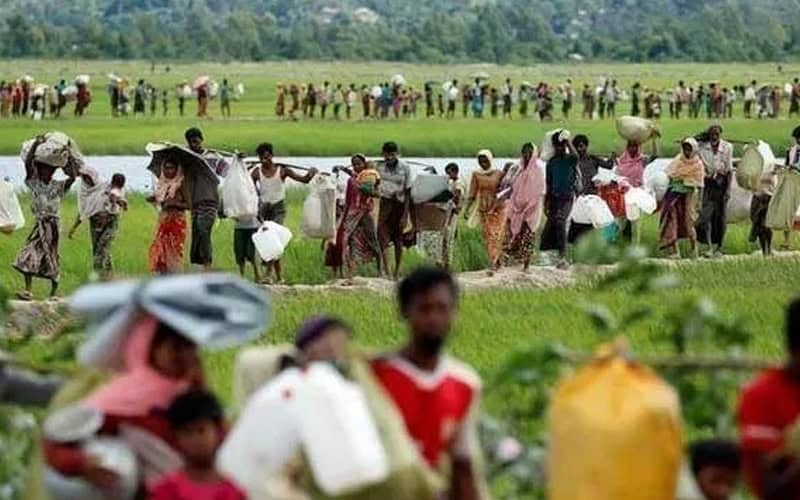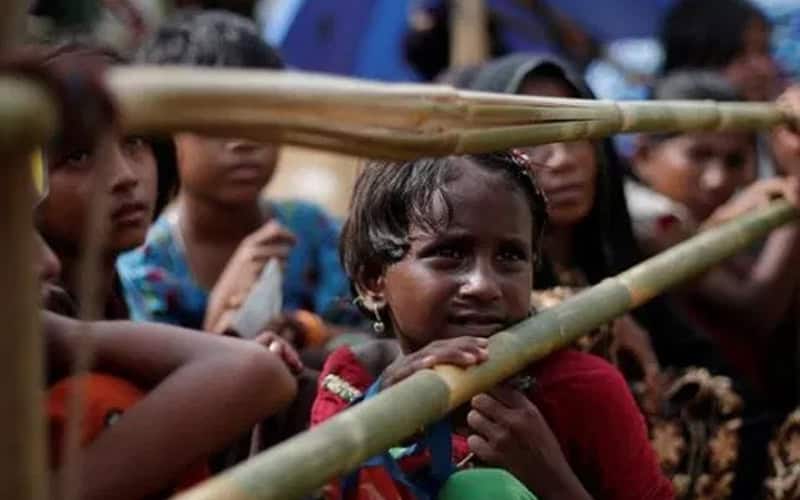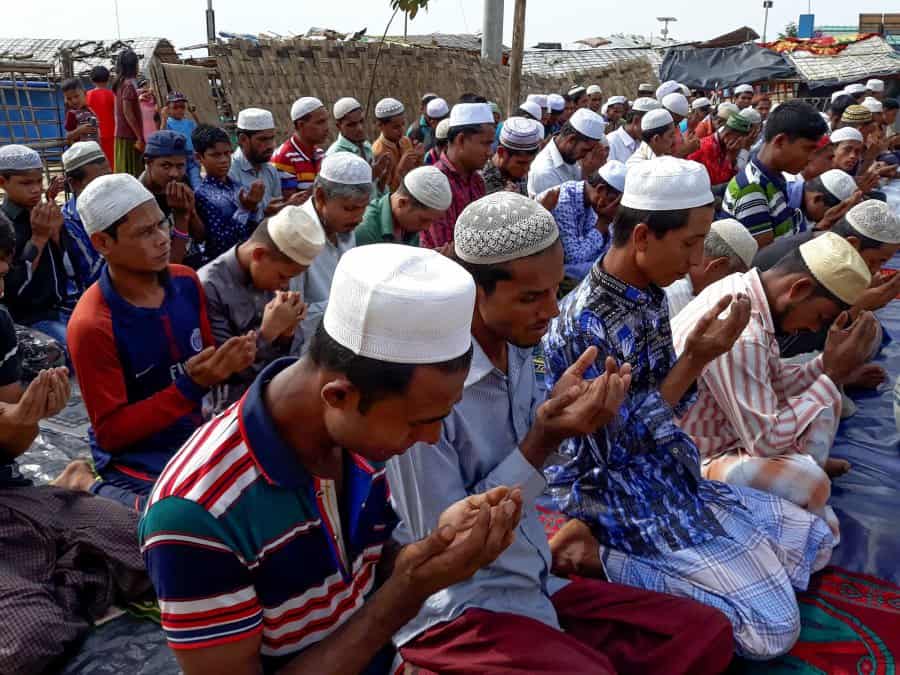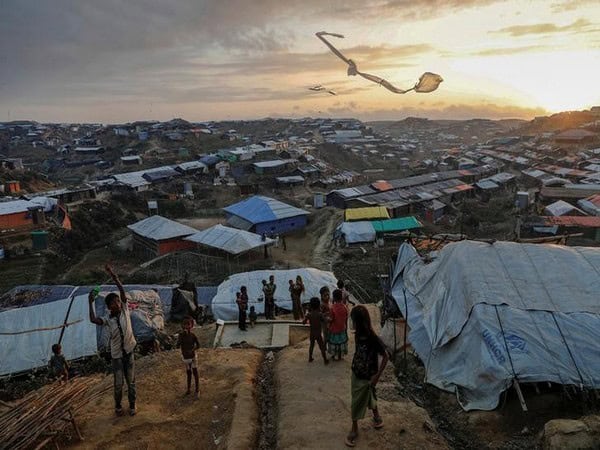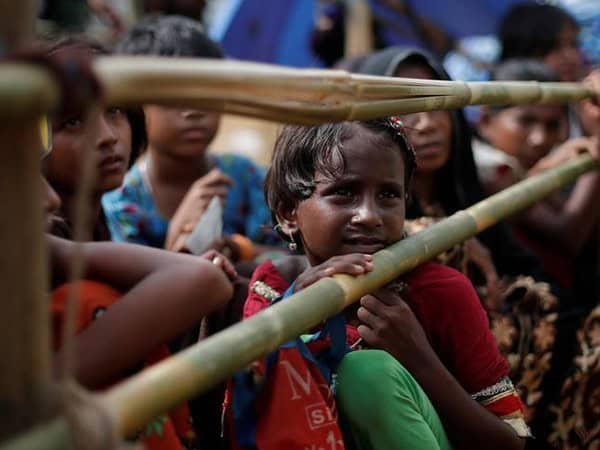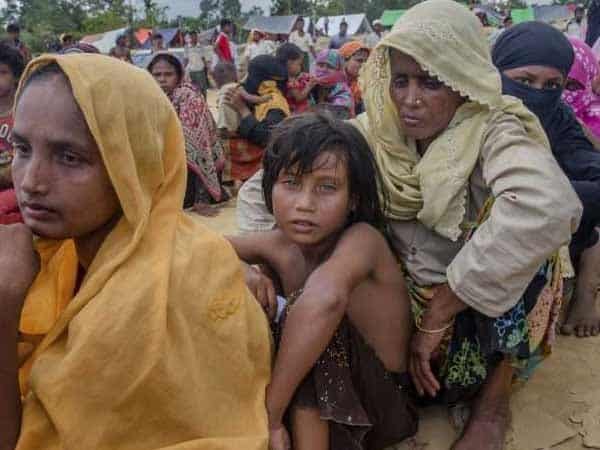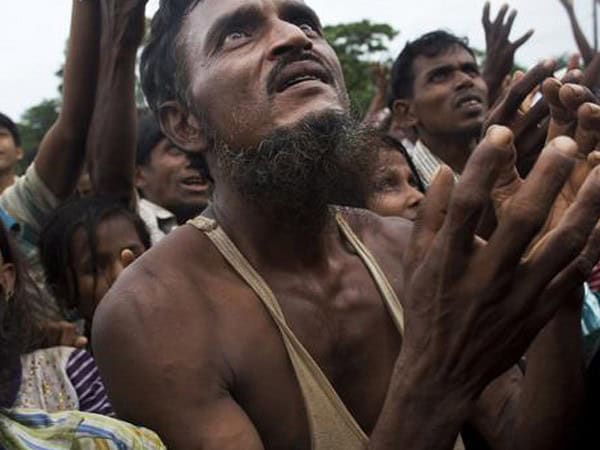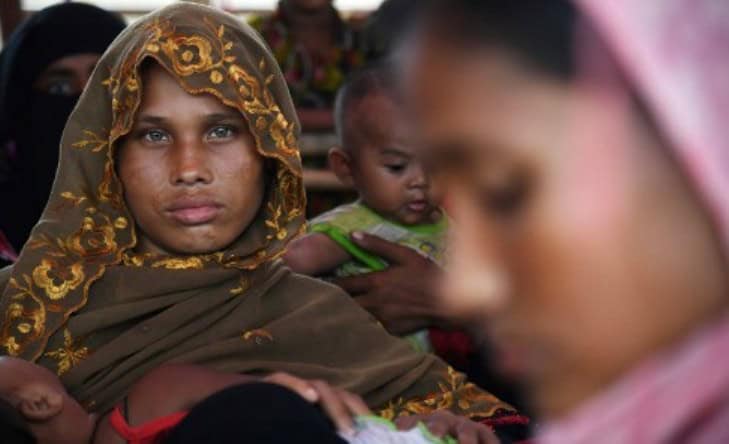More than 720,000 Rohingya have fled the western state of Myanmar since August 2017 after the military conducted “clearance operations,” sending a stream of refugees to neighbouring Bangladesh with accounts of rape, arson and mass killings — acts that UN investigators say amounts to “genocide” by the military generals.
Another 120,000 of the stateless minority, who are largely reviled by ethnic Rakhine and have garnered little sympathy among the Myanmar public, have been forced to live in displacement camps in the region with bleak conditions and a dire lack of food.

Myanmar’s president praises Rakhine state for ‘auspicious’ year
Despite such a sufferings, recently, Myanmar President Win Myint painted a different reality in a statement when he congratulated the “ethnic brothers and sisters” on the 44th anniversary of the Rakhine State Day.
With no natural disasters, “we can say that 2018 has been an auspicious year”, he had written in Myanmar’s state-run newspaper.
Rakhine, one of the poorest states in the country, is also the site of planned economic zones and the government is working to provide “24 hour electricity” to certain townships, he had said.
He had also praised a pact signed between Myanmar and Bangladesh to repatriate the Rohingya refugees and the arrangements made to receive “those displaced people who have gone over to the Bangladesh side”.
It may be noted that the refugees fear returning home without guarantees of protection, citizenship or rights from the government and the powerful military. Rights groups have criticised repatriation as premature and “reckless”.
As for those within the camps in Rakhine state, many have attempted to leave by boats to Malaysia and Indonesia since the monsoon season ended, enduring a perilous journey to escape what rights groups call “open-air prisons”.
“I wish to urge all Rakhine ethnic nationals and citizens to participate… (in the) transformation of Rakhine State into a beautiful and happy state,” Win Myint had said at the end of his statement.
It may be recalled that Win Myint was appointed to his position by Myanmar’s de facto leader Aung San Suu Kyi, who has faced international condemnation for her handling of the Rohingya crisis.
US House of Representatives accuses Myanmar of Rohingya ‘genocide’
The US House of Representatives overwhelmingly had adopted a resolution calling Myanmar’s expulsion of hundreds of thousands of Rohingya Muslims a “genocide.”
The lower house of Congress also accused the Myanmar military of “crimes against humanity” and called for the immediate release of two Reuters journalists who have been detained for covering the crisis.
The resolution was backed by 394 votes from both parties, with a single Republican opposing.
The United Nations has already classified the mass expulsions of hundreds of thousands of Rohingya from their homes as a “genocide.”
Members of Congress called on Secretary of State Mike Pompeo to “determine, based on available evidence, whether the actions by the (Myanmar) military in northern Rakhine State in 2017 constitute crimes against humanity, genocide, or other crimes under international law.”
It added that “all those responsible for these crimes against humanity and genocide should be tracked, sanctioned, arrested, prosecuted, and punished under applicable international criminal statutes and conventions.”
In November 2017, Pompeo’s predecessor Rex Tillerson called the military’s campaign against the Rohingya “ethnic cleansing” and in August issued sanctions against four commanders and two military units involved.
Since then, the State Department has been examining whether the actions of the military can be classified as genocide, a tougher, more legally binding term than “ethnic cleansing.”
Vice President Mike Pence had told Myanmar leader Aung San Suu Kyi that the actions of the military were “inexcusable.”
Rohingyas in India
Rohingya refugees living in India had appealed to the Indian government to mount pressure on Myanmar to create conditions conducive for their safe return.
Worried over reports that India may deport them, the refugees had said that they would return on their own once assured safety. They also want Myanmar to grant them citizenship and return their lands.
About 18,000 Rohingya refugees registered with UNHCR are living in India. Of them, 4,000 of them have found a home in Hyderabad.
Who are Rohingyas?
Rohingyas is a Muslim minority group of Myanmar who is facing atrocities in their home land. Myanmar does not acknowledge these persecuted Rohingyas as their citizen and restricts their rights. Basic life support needs are denied to them. Myanmar considers them ‘Bengalis’ and alleges that they are illegal immigrants from Bangladesh. On the other hand, Bangladesh denies acknowledging them as their citizen.
With inputs from AFP/IANS


